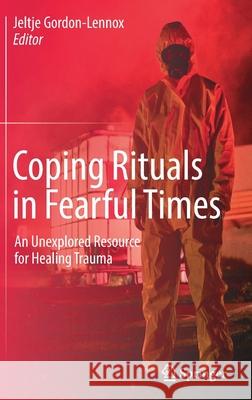Coping Rituals in Fearful Times: An Unexplored Resource for Healing Trauma » książka
topmenu
Coping Rituals in Fearful Times: An Unexplored Resource for Healing Trauma
ISBN-13: 9783030815332 / Angielski / Twarda / 2022 / 207 str.
Kategorie:
Kategorie BISAC:
Wydawca:
Springer
Język:
Angielski
ISBN-13:
9783030815332
Rok wydania:
2022
Wydanie:
2021
Ilość stron:
207
Waga:
0.52 kg
Wymiary:
23.39 x 15.6 x 1.6
Oprawa:
Twarda
Wolumenów:
01
Dodatkowe informacje:
Wydanie ilustrowane











